Groundbreaking Workshop on AI and Technology-Facilitated Gender-Based Violence at AWiM24
Trending
Sunday May 11, 2025
Trending
The African Women in Media (AWiM) seventh annual conference opened in Rwanda’s capital Kigali on Thursday morning to address gender violence and media.
With the theme “Media and Gender Violence”, this year conference focused on the need to unite and set the bar higher in the media’s commitment to address how its reports gender-based violence and create an enabling environment for women journalists.
Dr Yemisi Akinbobola Co-founder and CEO of AWiM in her opening speech remind the need audience to imagine a world where there was no longer a need to talk about gender-based violence, where there was no longer a need to develop the policies and declaration that address sexual harassment and online harassment.
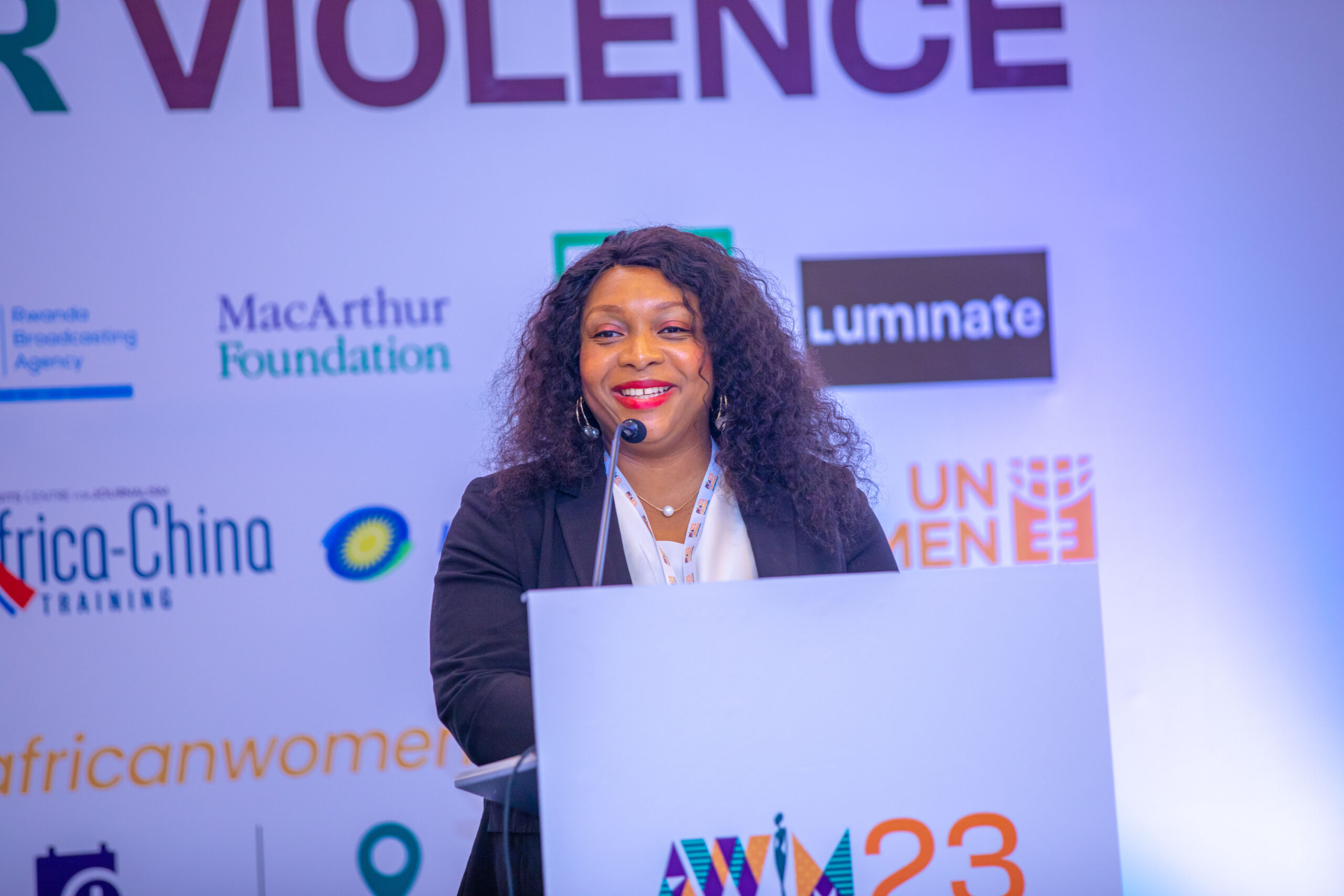
Dr Akinbobola stated “We need to unite, set the bar higher in our industry’s commitment to addressing how it reports gender-based violence, and how it creates enabling environments for its female staff. But to achieve this we must first talk; we must discuss we must share our experiences. We must learn from efforts so far, and then agree on what our demands are going forward.”
“Over the next two days, we will hear from journalists, film makers, academics, policy actors, development professionals, media leaders, civil society and students. They will share their expert insights, their lived experiences, their best practices, their call to action. And all of this will feed into the Kigali Declaration on the Elimination of Gender Violence in and through media,” Dr Akinbobola emphasized.
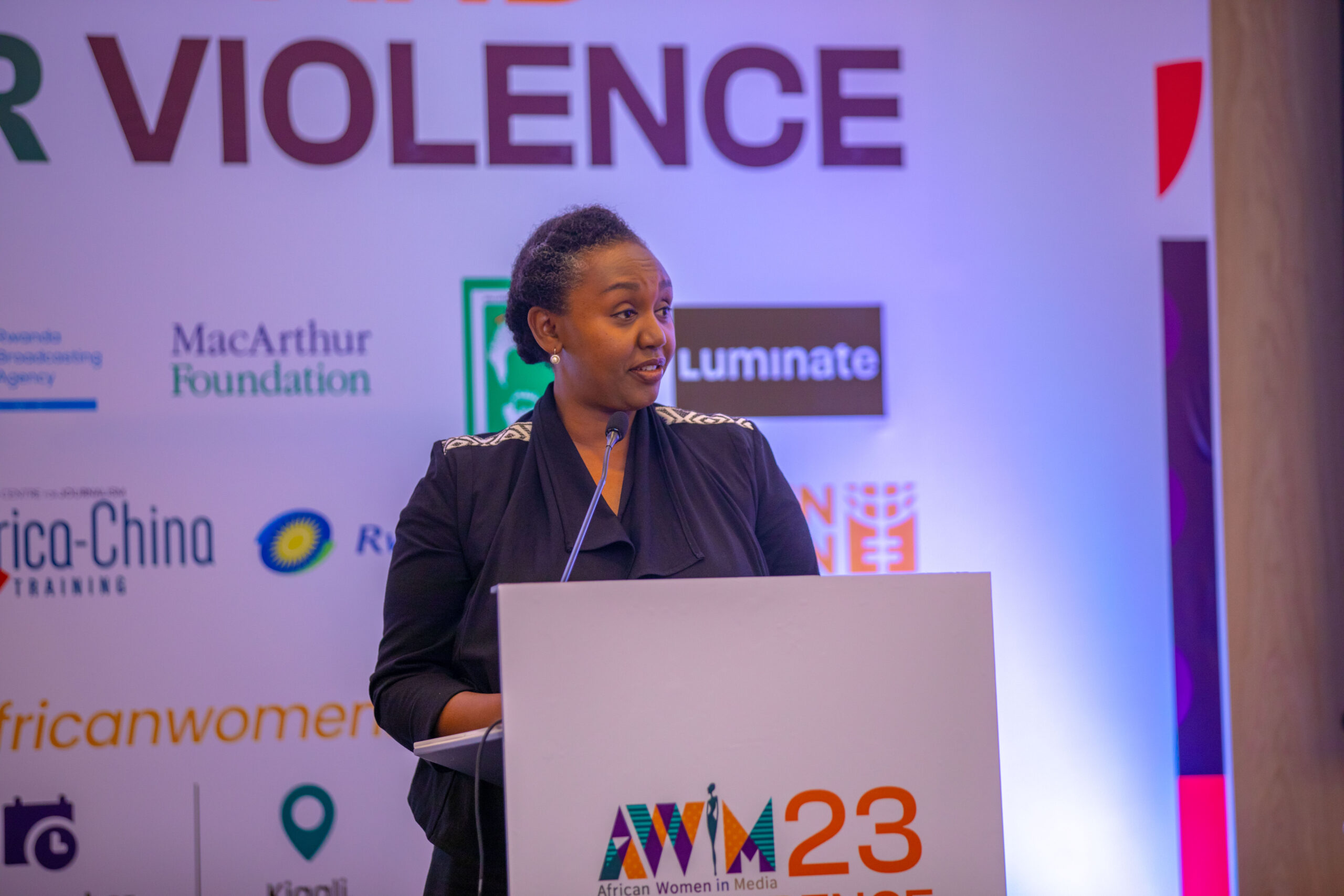
On her part, the spokesperson of Rwandan Government Yolande Makolo stated that it is a fact that women in journalism are targeted to the violence, harassment in the newsroom and field.
“On the plus side, women play a critical role in the fight against GBV through the stories they tell and how they tell it,” She stressed.
She also said that in Rwanda there are extreme experiences of GBV because of the country’s history.
“This is why we have worked hard on being intentional and consistent about: educating women, and the rest of the society, about our rights and laws protecting women and girls; raising awareness of GBV in workplaces, newsrooms and homes; and ensuring perpetrators are punished in accordance with the law.”
She concluded her speech with a quote from Rwandan President Paul Kagame who is a champion of women empowerment, “The only way to think about violence against women and girls is as a violation of rights and a crime and indeed a threat to progress in Africa and around the world”.
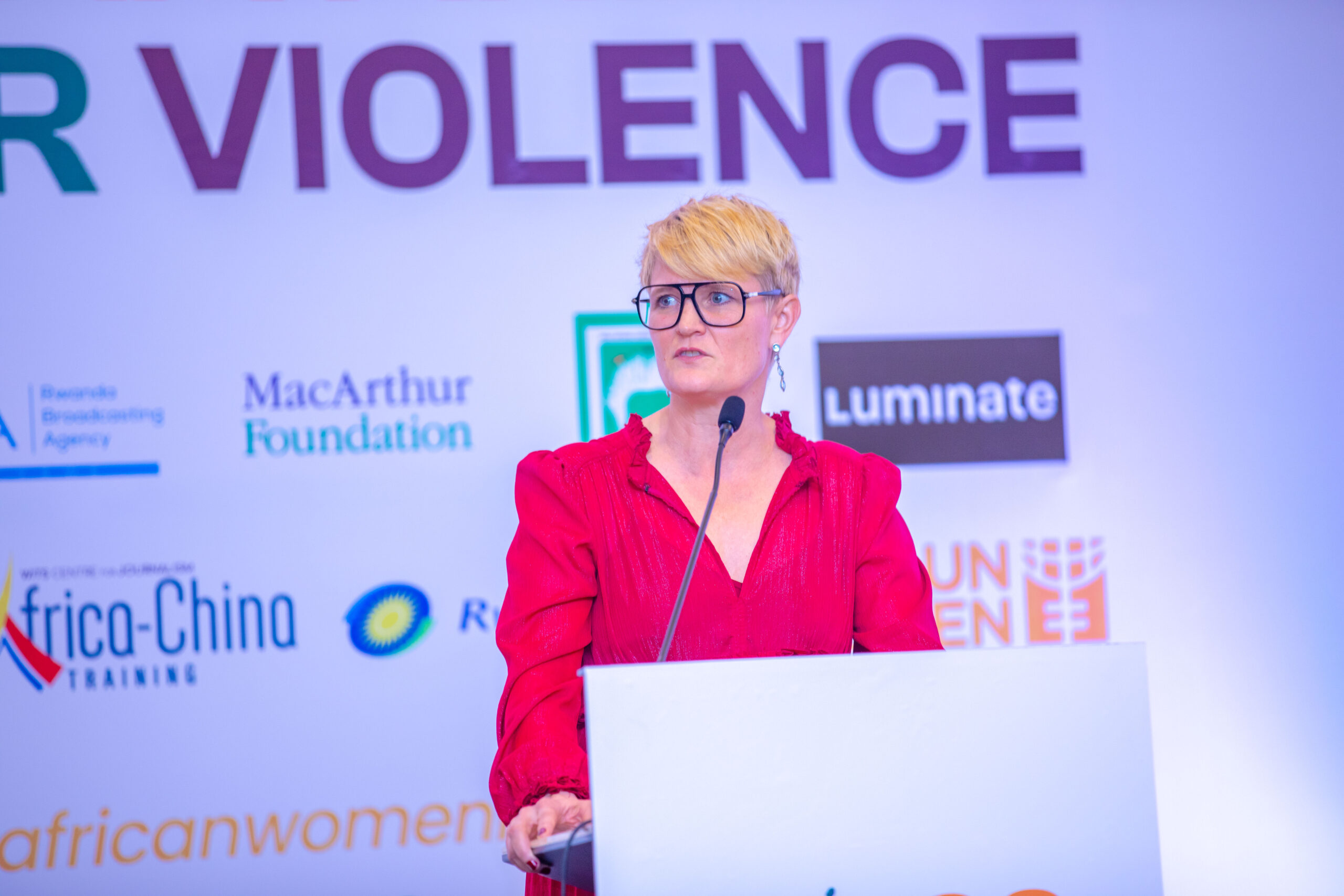
Swedish ambassador to Rwanda Johanna Teague on her speech mentioned that she believes through different policies taken in fighting gender-based violence, that in few years to come there will be massive change and transformations in the newsroom where people especially women and girls can work in safety.
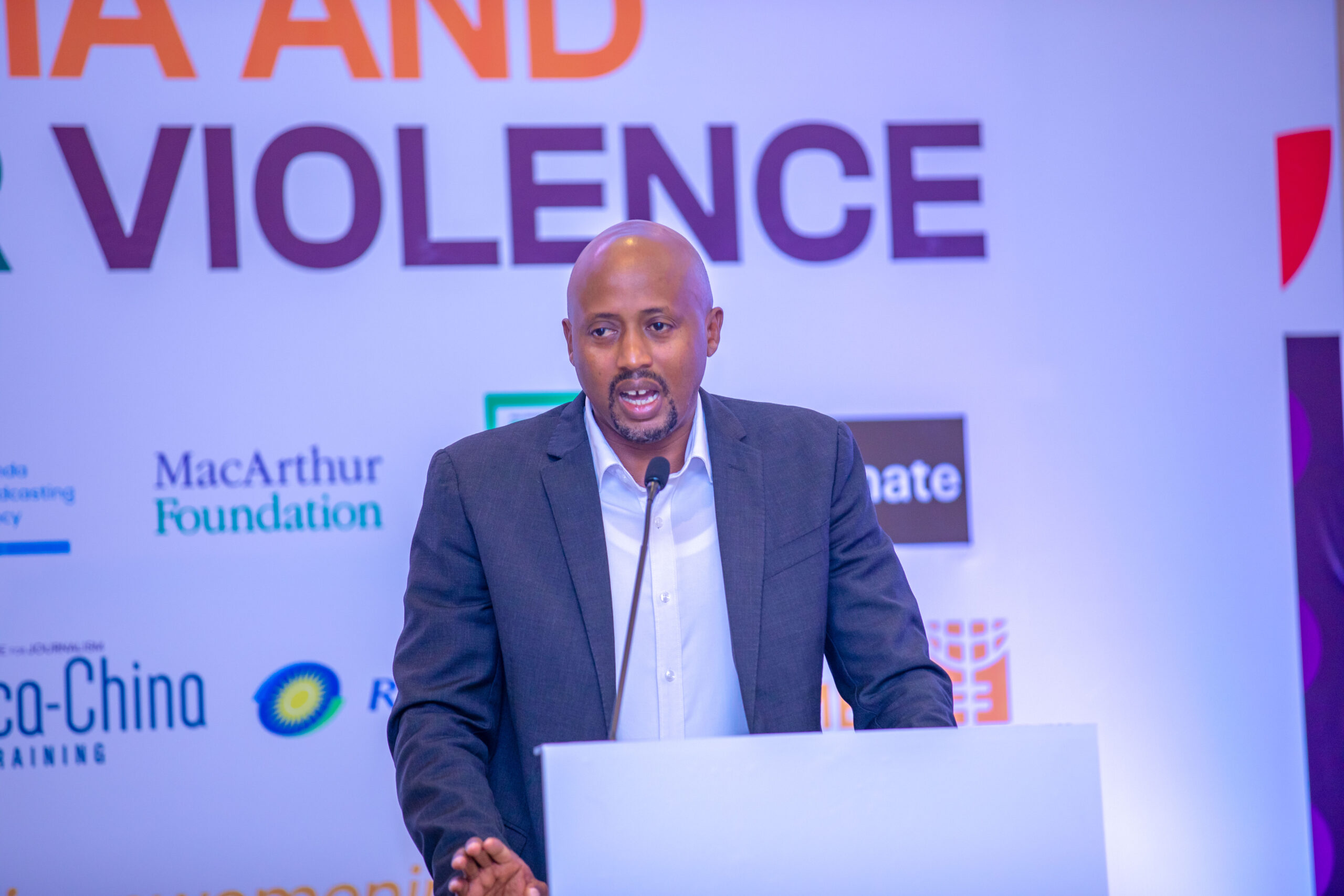
In his speech Arthur Asiimwe from Rwanda Broadcasting Agency stated that bringing awareness and paying attention into media sectors to fight against gender-based violence is crucial and men should be supportive.
“We should create a safe working environment for women and men should play a big role in unifying themselves to protect women.”
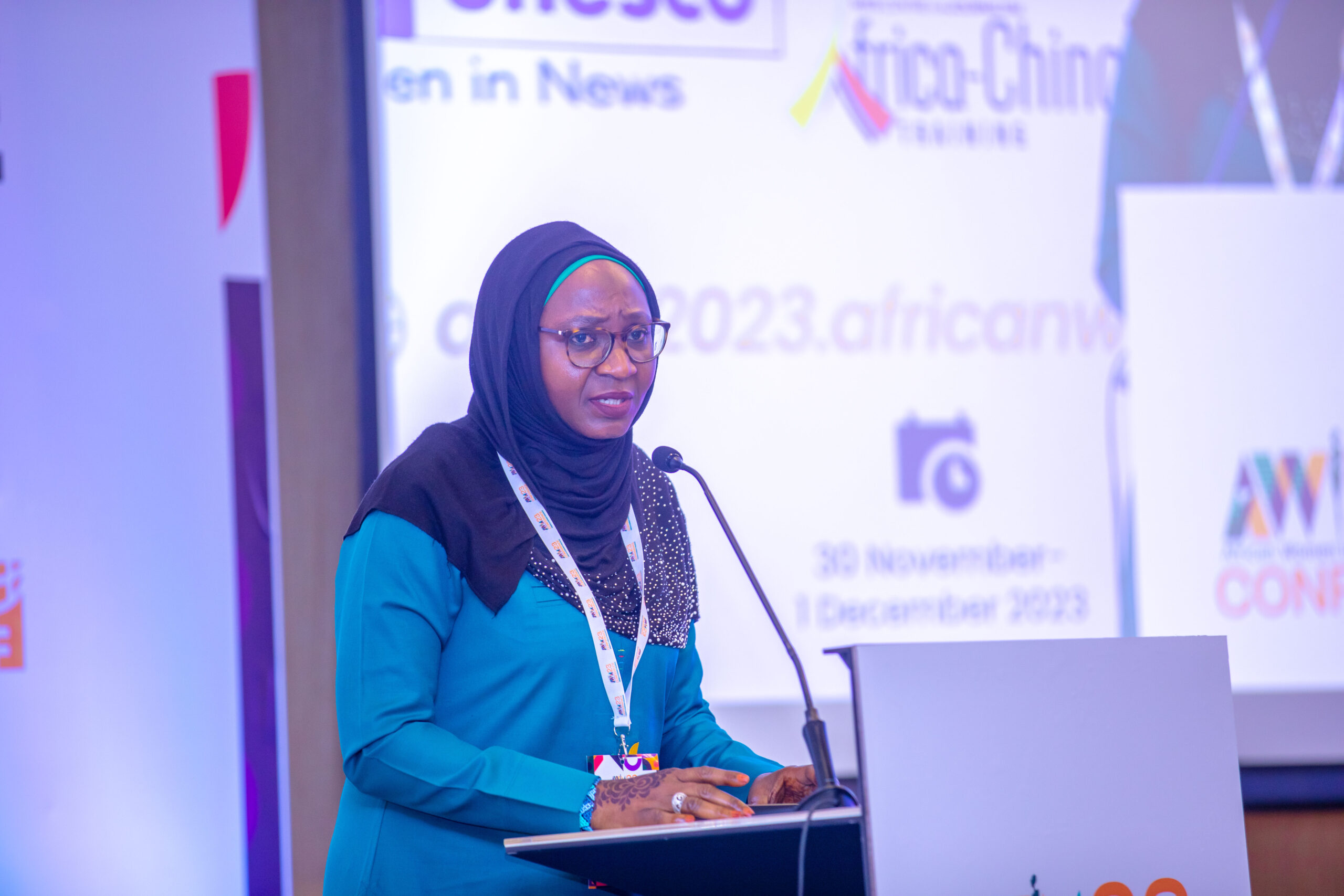
On her part Dr Amina Salihu, the Deputy Director MacArthur Foundation, said that at the heart of all this; character of the media and its competence and capacity has shaped them in the journey of the fighting against gender-based violence which is essential to world.
“McArthur has been Africa for 30 years. Our charge is to support creative people, influential networks and effective institutions. The media and journalism field are a big part of that as you can tell and because we are interested in sustaining accountability.”
Dr Amina added, “the media must itself be accountable: we need to hold ourselves accountable, and then each other before demanding it of others.”
“I live and work where GBV was once thought to be a domestic matter but now things are changing, there are laws and policies that criminalize GBV because feminists have always known that the personal is political that which affects you wherever you are home or public determine your dignity and personhood and effect your capacity.”
Dr Amina concluded by congratulating AWiM on the Kigali declaration against GBV.
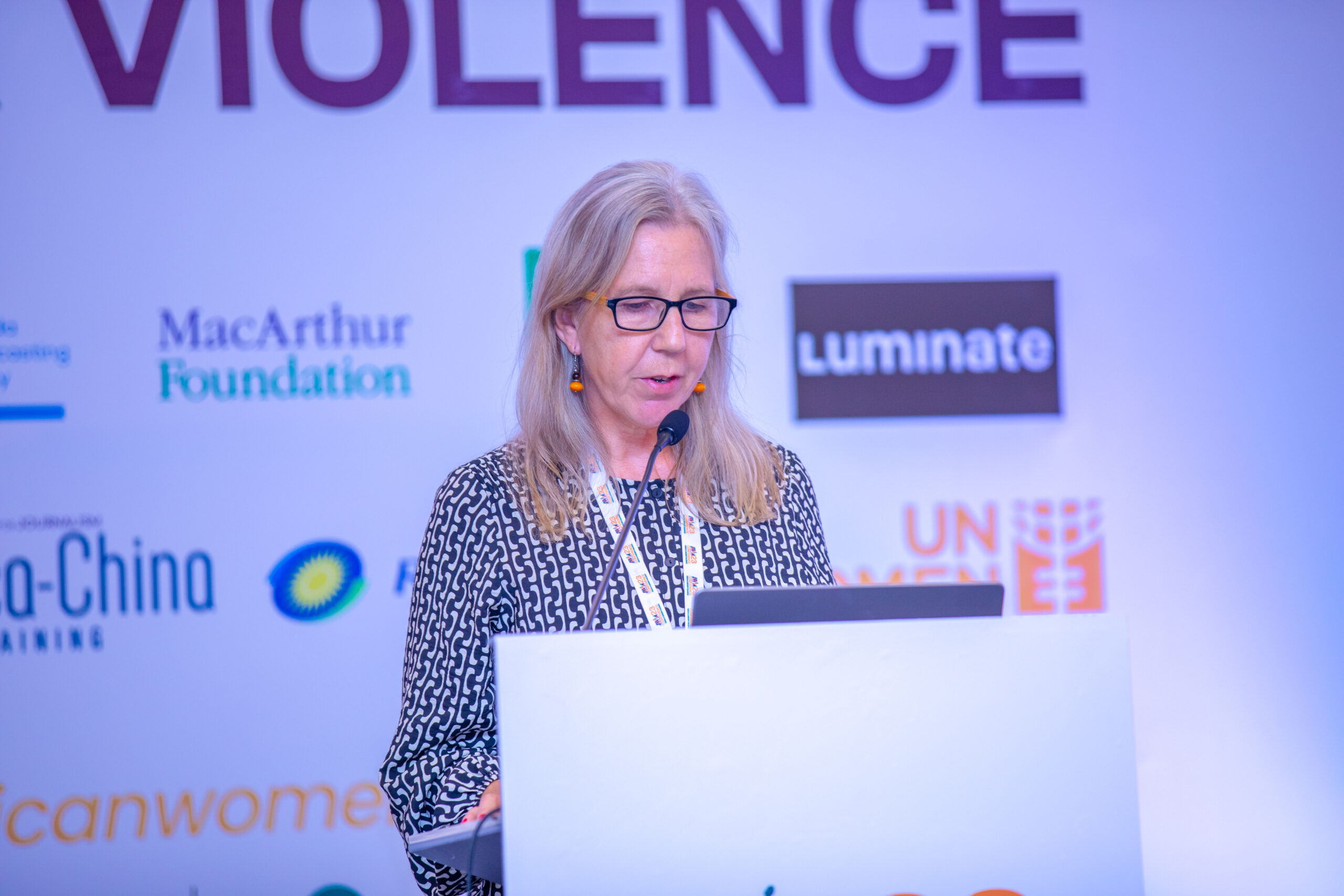
Annelie Frank also shared her earlier experience in the newsroom and called for more work in changing attitudes towards eliminating GBV in the media.
“The media and journalism can do much in order to stop GBV, and I am convinced that almost everyone in this room already is doing a lot. For example, last week 34 media houses here in Rwanda signed Rwanda Media Anti Sexual Harassment policies with guideline and recommendation for them how to handle the issue in their own workspace, the managers in these 34 media houses have committed to make a change, to start where they have the power to impact.”
She continued,” but we-we as the media sector-can do even more-both in our work space but also in our reporting -in order to change attitudes and in the prolong GBV. And today and tomorrow we all in this room will do more”.
Dr Akinbobola also acknowledged organisations and individuals whose support made it possible for the conference to take place.
“First to our local partners, Fojo Media Institute and Mount Kigali University. AWiM and Fojo have collaborated on a series of projects since 2020 and one of our proudest has been the production of two key pieces of research. The first explored the lived experiences of women journalists in sub-Saharan Africa, and the second looked specifically at women journalists in Rwanda.”
“ The outcomes of both studies have guided much of our work over the last three years. Through Fojo’s work in Rwanda, we have connected with the women in media associations in Rwanda, and we are grateful to have you all here,” Dr Akinbobola concluded.
We’re not gonna spam. We’ll try at least.

Copyright 2020. African Women In Media
Copyright 2020. African Women In Media
Recent Comments